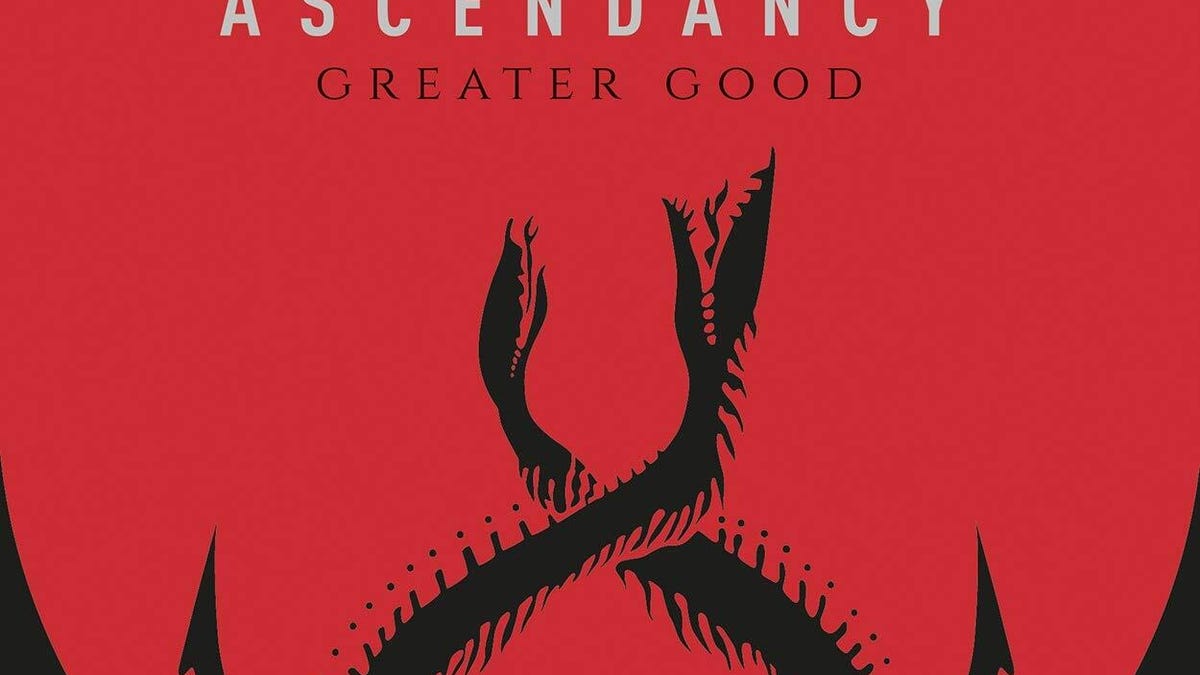 Why You Can Trust CNET
Why You Can Trust CNET Star Wars: Thrawn Ascendancy: Greater Good sidelines its incredible lead character too much
Book review: Timothy Zahn, please give us more Thrawn.

Thrawn Ascendancy: Greater Good is an uneven but clever sequel.
Some Star Wars fans might feel a little old when they realize that Grand Admiral Thrawn turns 30 this year. Author Timothy Zahn introduced the character in the 1991 novel Heir to the Empire, helping to revive the whole franchise and bringing in an iconic villain who's outwitted our heroes in books and TV shows ever since (and might soon make his live-action debut).
In last year's Thrawn Ascendancy Book 1: Chaos Rising, Zahn dived into the tactical genius' backstory and opened up an exciting universe "beyond a galaxy far, far away" for a new trilogy of novels. Thrawn is a rising star in the military of the Chiss Ascendancy, an isolationist government in the Unknown Regions, and he's chasing down mysterious new threats to his people.
Thrawn Ascendancy Book 2: Greater Good, which hits shelves Tuesday, picks up that investigation as Thrawn and his crew hop around the galaxy looking for clues. Unbeknownst to them, the enemy is charming its way into their society.
That brings us to the novel's major problem: Thrawn and his team are sidelined for much of this story. It's more concerned with establishing other Chiss, but doesn't do enough legwork to make us feel emotionally attached to them. You'd better remember the previous book too, because this one immediately flings a bunch of its Chiss terminology and politics at you.
This novel takes place during the Clone Wars (between Attack of the Clones and Revenge of the Sith), but the time frame is largely irrelevant since there are no major connections to the familiar Star Wars galaxy beyond Thrawn himself. Zahn is more concerned with establishing his own corner of the universe, which can make events harder to connect to.
As a result, the first half of the 410-page tale meanders to a frustrating degree. The story finds its groove in the latter section, when Thrawn is more present and in command of Zahn's engaging, intricately written action sequences.
However, the novel's most intriguing element is its villains -- a group of aliens who work their way into the Chiss political system. They use the rivalries between the race's ruling Chiss families to further their plot and the story of their infiltration is filled in through flashback chapters. They come together beautifully, making for utterly engaging reading.
There's also a bigger baddy lurking in the shadows, pulling the strings as the true antagonist to the Chiss. He shows up periodically to remind us of the greater threat and scare his underlings, but doesn't get enough characterization to leave much of an impression. So he feels like a one-note cackling mystery villain
It's just a pity the plot lines feel so separate. Thrawn has been established as such an infallible strategist that he can't come in direct contact with a manipulative rival and lose, so he has to be removed from the equation. It'd be much more satisfying if he lost in a battle of wits (especially at this early stage of his career), but grew as a character and triumphed later.
Zahn periodically reminds us that Thrawn's cluelessness in the realm of politics is his major character flaw, but this novel doesn't make him face that aspect of Chiss society in any meaningful way. So there's never a sense that his military strategies won't be enough to win, sucking the danger of any conflict he's involved in.
Greater Good feels like setup for the final book in Zahn's Thrawn Ascendancy trilogy -- Lesser Evil is due out in November. It becomes more engaging as it goes along, but fails to satisfy as a standalone story and ends on a disappointingly limp note. Fans who've been following Thrawn's three decades of adventures can only hope he faces a more direct threat before the trilogy comes to a close.

